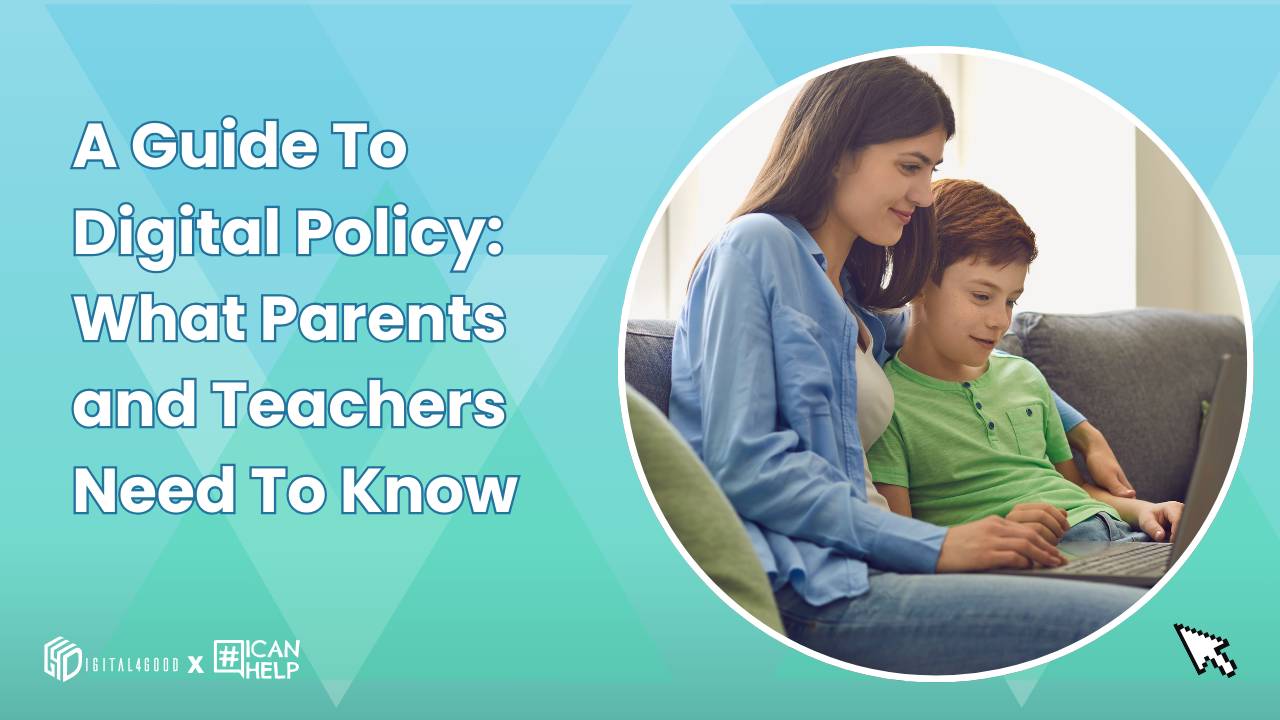A Guide to Digital Policy: What Parents and Teachers Need To Know
Jul 16, 2025
By: Anthea Yuen | Seasonal Public Relations Intern | Digital4Good
Since the COVID-19 pandemic, children and teens’ average screen time has increased by 17% in just two years. The rapid acceleration of social media use has raised significant concerns among parents, guardians, and educators about youth safety and mental health. For years, those concerned about youth well-being have called for policies and regulations to protect minors on social media, with varied results.
What measures have companies, lawmakers, and politicians taken to make the digital world safer for children and teens? Let’s take a look.
Bills and Bans
Around the globe, countries like the United States and Australia have approved varying degrees of restriction on children’s social media use. We’ll examine the most notable examples of legislation in recent years, as well as the responses to each.
California Legislation
In 2024, California saw the passing of legislation to mitigate social media addiction in minors and prevent in-school device usage. California Governor Gavin Newsom signed a bill in September that would require technology companies to implement stronger safety features on their platforms, including stricter procedures surrounding age verification, algorithm regulation, and notifications for minors. According to the bill, social media companies are prohibited from sending notifications to minors during school hours (8 a.m. to 3 p.m.) and sleep hours (12 a.m. to 6 a.m.). Governor Newsom also called for a ban on smartphone usage in California public schools in June 2024.
Florida Legislation
In 2024, Florida Legislature and Governor Ron DeSantis passed a law banning minors under 16 from social media. The law makes exceptions for 14- and 15-year olds, but only with parental permission.
Moreover, Florida lawmakers have pushed for further restrictions for minors and greater permissions for adults, such as enabling parents to view their children’s social media messages. Under this restriction, minors under 16 would be blocked from using the “disappearing messages” feature, like those seen on Snapchat and Instagram. Parental consent would also allow law enforcement to view messages.
Australia Ban
In November 2024, the Australian government approved a social media ban for minors under the age of 16. The law requires social media companies to prohibit minors from logging into their platforms. Penalties for noncompliance include fines up to $49.5 million AUD ($32 million USD). Unlike other countries, the ban in Australia is absolute, affecting the entire country.
What Are Companies Doing?
Social media companies are also taking action to protect minors on their platforms. Instagram recently implemented “Teen Accounts” for minors aged 13 to 17, which are automatically configured with protective safety settings. These settings include default private accounts, sensitive content control, and sleep mode (which mutes notifications from 10 p.m. to 7 a.m. each day.) Additionally, teens’ parents and guardians are able to set time limits and approve or deny changes to safety settings.
Response to Legislation
Reactions to these new bills and bans have been divided. A.C.L.U. California Action, for instance, has called attention to potential privacy issues in California’s new social media legislation, as stricter age verification procedures would require an increase in user data collection. Other opponents to the bill include L.G.B.T.Q. youth advocates like The Trevor Project, which raised concerns about how enhanced parental controls could restrict young people’s access to “identity-affirming communities and resources online.”
In Australia, youth advocacy groups have critiqued the countrywide ban as infringing upon the “human rights of young people by interfering with their ability to participate in society.” Additionally, much like A.C.L.U. California Action in the United States, Australian privacy advocates have raised concerns about the increased collection of personal data in their own country’s social media ban.
What Now?
Around the globe, stricter social media regulation policies for minors are being enforced. However, the bans alone won’t resolve mental health and well-being issues caused by social media. Young people also need education on why digital wellness is important, as well as how to keep themselves safe online when the bans no longer apply to them.
As parents, guardians, and educators, it is crucial not just to stay updated on legislation in your area, but also to educate yourself and your children about safe and responsible technology use. For more resources on digital safety for parents and caregivers of children and teens, check out Digital4Good's Digital Safety Course.
Stay connected with news and updates!
Join our mailing list to receive the latest news and updates from our team.
Don't worry, your information will not be shared.
We hate SPAM. We will never sell your information, for any reason.


